Only eight songs peaked this week; some of them may actually be good…
She doesn’t love you anymore
 If you liked “Romeo’s Tune” by Steve Forbert, you’ll like “Say Goodbye to Little Jo“, too. Sure, it stalled at #85, but as we’ve seen, it isn’t always the best songs that climb the charts. This song sounds like a bitter sweet break-up song, but if you listen, not even too closely, it’s a bitter telling off of a guy who’s lost a girl who was too good for him. She’s perhaps that stereotypical woman who was trying to fix the problem boy, but she’s finally had one too many nights of not talking and being manipulated into staying and she’s gone. It’s a rare empowerment song that isn’t self-congratulatory; no, it’s a song about learning from mistakes, praising the women who do and castigating the men who don’t.
If you liked “Romeo’s Tune” by Steve Forbert, you’ll like “Say Goodbye to Little Jo“, too. Sure, it stalled at #85, but as we’ve seen, it isn’t always the best songs that climb the charts. This song sounds like a bitter sweet break-up song, but if you listen, not even too closely, it’s a bitter telling off of a guy who’s lost a girl who was too good for him. She’s perhaps that stereotypical woman who was trying to fix the problem boy, but she’s finally had one too many nights of not talking and being manipulated into staying and she’s gone. It’s a rare empowerment song that isn’t self-congratulatory; no, it’s a song about learning from mistakes, praising the women who do and castigating the men who don’t.
My heart keeps on feeling
 I will admit I wasn’t expecting to stumble on The Beach Boys in 1980, and, doing research I’m even more amazed to learn that these are all the original Beach Boys. I’ll also admit I’ve never much been a fan of their music, but I do respect them. Don’t get me wrong — I respect them — they’ve clearly got talent, pulling off harmonies that other groups wouldn’t try to crest even with floatation devices. It’s just that their lyrics are so predominantly vapid; I wish they’d used their talent to perform better music. “Goin’ On” (#83) is a perfect example of this. The vocal talent is crystal clear, layered, and deep, but the lyrics are moronic: “We couldn’t quite make it/But I still can’t shake it” are the lazy, cheap teen-aged rhymes Frank Zappa was mocking the Beach Boys for back in the 60s, and here they are as certified adults singing the same kind of nonsense. I wish I could say that The Beach Boys get better, but I know that 1987 is going to bring us “Kokomo”, so, no it doesn’t get better.
I will admit I wasn’t expecting to stumble on The Beach Boys in 1980, and, doing research I’m even more amazed to learn that these are all the original Beach Boys. I’ll also admit I’ve never much been a fan of their music, but I do respect them. Don’t get me wrong — I respect them — they’ve clearly got talent, pulling off harmonies that other groups wouldn’t try to crest even with floatation devices. It’s just that their lyrics are so predominantly vapid; I wish they’d used their talent to perform better music. “Goin’ On” (#83) is a perfect example of this. The vocal talent is crystal clear, layered, and deep, but the lyrics are moronic: “We couldn’t quite make it/But I still can’t shake it” are the lazy, cheap teen-aged rhymes Frank Zappa was mocking the Beach Boys for back in the 60s, and here they are as certified adults singing the same kind of nonsense. I wish I could say that The Beach Boys get better, but I know that 1987 is going to bring us “Kokomo”, so, no it doesn’t get better.
Don’t look now, but here come the ’80s
 “Borrowed Time” (#64) was Styx’s opening song for their 1979-80 tour, and I’m sure at the time it sounded really rockin’ and edgy. I don’t think it’s aged well. The tempo is in an awkward middle-ground between driving and rambling, which, when combined with the grouped triplets they use to emphasize the starts to the phrases in the chorus, sounds shambling and staggering. They also haven’t quite figured out how to meld the gentle sci-fi synthesizer with their hard-rockin’ guitar, and the coupling feels like a pale imitation of what Queen and Journey were doing around the same time. Still it’s inoffensive and it gets to where it wants to go, which is the second rockin’ song in the set, so let’s cut it some slack.
“Borrowed Time” (#64) was Styx’s opening song for their 1979-80 tour, and I’m sure at the time it sounded really rockin’ and edgy. I don’t think it’s aged well. The tempo is in an awkward middle-ground between driving and rambling, which, when combined with the grouped triplets they use to emphasize the starts to the phrases in the chorus, sounds shambling and staggering. They also haven’t quite figured out how to meld the gentle sci-fi synthesizer with their hard-rockin’ guitar, and the coupling feels like a pale imitation of what Queen and Journey were doing around the same time. Still it’s inoffensive and it gets to where it wants to go, which is the second rockin’ song in the set, so let’s cut it some slack.
Lighting my dreams like a morning star
 You may not know Felix Cavaliere by name, but you probably know some of his work. He was a member of The Starlighters, who gave us “The Peppermint Twist” ( which as a Twist song has stood the test of time much better than anything Chubby Checker put to vinyl) and he was a Young Rascal, whom we have to thank for the inanity that is “Good Lovin’“. But he had a mellow solo run too, and “Only a Lonely Heart Sees” (#36) is an artifact of that solo career. Here he’s jumping on the easy-listening bandwagon, giving it something of a breathy Bee-Gees twist, making music for people who are to laid-back, or perhaps a year or two too old, for real disco. He’s going to show us the way to paradise on the heels of the hands that tap out the Caribbean rhythms on those bongos that pepper the percussion track. No need to get out of your lawn chair or maroon shag easy chair — in paradise your pulse doesn’t have to rise above resting rate.
You may not know Felix Cavaliere by name, but you probably know some of his work. He was a member of The Starlighters, who gave us “The Peppermint Twist” ( which as a Twist song has stood the test of time much better than anything Chubby Checker put to vinyl) and he was a Young Rascal, whom we have to thank for the inanity that is “Good Lovin’“. But he had a mellow solo run too, and “Only a Lonely Heart Sees” (#36) is an artifact of that solo career. Here he’s jumping on the easy-listening bandwagon, giving it something of a breathy Bee-Gees twist, making music for people who are to laid-back, or perhaps a year or two too old, for real disco. He’s going to show us the way to paradise on the heels of the hands that tap out the Caribbean rhythms on those bongos that pepper the percussion track. No need to get out of your lawn chair or maroon shag easy chair — in paradise your pulse doesn’t have to rise above resting rate.
I appreciate you’re busy
 Inexplicably, here’s Cliff Richard again, this time with “Carrie“. I understand that he was a big deal in Britain — like Johnny Hallyday was for France, he was, no, is, Britain’s Elvis — but I didn’t understand that he had any impact overseas. And yet here he is at #34, the lower reaches of the top 40, but top 40 nonetheless. Perhaps more inexplicably, this song is actually good. The creeping guitar manages to capture the feel of anxious shyness and curiosity, precisely the tone that a song told by a guy looking for a vanished girl should hit, full of trepidation and hope at the same time. And the lyrics are interesting: “the young wear their freedom like cheap perfume”, for instance, captures both the slapdash excitement of immature maturity and the cynicism of an older person’s perspective on that ill-considered freedom. All of that and this song rocks, with an infectious melody that makes you want to follow Carrie to wherever she went, maybe a grimy billiards room or some back-alley biker bar. Wherever she is and whatever reason, you can feel why Cliff wants to find her.
Inexplicably, here’s Cliff Richard again, this time with “Carrie“. I understand that he was a big deal in Britain — like Johnny Hallyday was for France, he was, no, is, Britain’s Elvis — but I didn’t understand that he had any impact overseas. And yet here he is at #34, the lower reaches of the top 40, but top 40 nonetheless. Perhaps more inexplicably, this song is actually good. The creeping guitar manages to capture the feel of anxious shyness and curiosity, precisely the tone that a song told by a guy looking for a vanished girl should hit, full of trepidation and hope at the same time. And the lyrics are interesting: “the young wear their freedom like cheap perfume”, for instance, captures both the slapdash excitement of immature maturity and the cynicism of an older person’s perspective on that ill-considered freedom. All of that and this song rocks, with an infectious melody that makes you want to follow Carrie to wherever she went, maybe a grimy billiards room or some back-alley biker bar. Wherever she is and whatever reason, you can feel why Cliff wants to find her.
You deny me of my needs
 Utopia was essentially a vehicle for Todd Rundgren to produce music under a name other than Todd Rudgren. “Set Me Free” (#27) is a surprisingly bouncy light-progressive single. I’m not sure what, exactly, I was expecting. Well, I can tell you that at first I was expecting Utopia to be a disco-funk outfit, and then, when I saw Todd Rundgren on the track, I was expecting something, well, more rock-oriented. But “Set Me Free” is pretty much straight-forward pop. Well, at least the arrangement and instrumentation is. The melody wanders all over the place, so that it doesn’t really have that sing-along quality that characterizes pop singles. I mean, imagine trying to sing this karaoke, even without a few beers in you, let alone drunk like most karaoke would be done. I’m not sure it’s possible. Anyway, it’s an interesting curio, but ‘m not entirely sure I understand how it got to #27.
Utopia was essentially a vehicle for Todd Rundgren to produce music under a name other than Todd Rudgren. “Set Me Free” (#27) is a surprisingly bouncy light-progressive single. I’m not sure what, exactly, I was expecting. Well, I can tell you that at first I was expecting Utopia to be a disco-funk outfit, and then, when I saw Todd Rundgren on the track, I was expecting something, well, more rock-oriented. But “Set Me Free” is pretty much straight-forward pop. Well, at least the arrangement and instrumentation is. The melody wanders all over the place, so that it doesn’t really have that sing-along quality that characterizes pop singles. I mean, imagine trying to sing this karaoke, even without a few beers in you, let alone drunk like most karaoke would be done. I’m not sure it’s possible. Anyway, it’s an interesting curio, but ‘m not entirely sure I understand how it got to #27.
Somebody’s got to lose
 The Whispers are the funk-disco outfit I expected Utopia to be. “And the Beat Goes On” was their biggest hit, landing at #19 and more or less at the midpoint of their singles catalogue. As disco songs go, it’s pretty innocuous. It makes my feet want to get up and dance without relying on too many disco clichés. And there’s a message to the song that is unusual for a disco song: instead of the beat going on being about endless dancing, its about picking oneself up after a setback (in love, of course, it’s always about love) and getting on with your life. And dancing to it. The instrumentation of this song is actually very promising; it sounds a lot more like the kind of funk that was coming out in 1985 than the bulk of soul tracks that populated jukeboxes in 1979.
The Whispers are the funk-disco outfit I expected Utopia to be. “And the Beat Goes On” was their biggest hit, landing at #19 and more or less at the midpoint of their singles catalogue. As disco songs go, it’s pretty innocuous. It makes my feet want to get up and dance without relying on too many disco clichés. And there’s a message to the song that is unusual for a disco song: instead of the beat going on being about endless dancing, its about picking oneself up after a setback (in love, of course, it’s always about love) and getting on with your life. And dancing to it. The instrumentation of this song is actually very promising; it sounds a lot more like the kind of funk that was coming out in 1985 than the bulk of soul tracks that populated jukeboxes in 1979.
Leave that nine-to-five up on the shelf
 Speaking of music that sounds like 1979, this week’s list ends with “Off the Wall” by Michael Jackson (#10). Maybe that’s unfair. Michael Jackson’s voice is its own thing, it’s timeless, and regardless of the backing music, it transcends its release year. And musically, the composition is more adventurous than most disco, with an almost prog-like melody and ambitious bridges. But the instrumentation is very disco; it’s very very close to a Stevie Wonder-style modern jazz song, but there’s the breathy layered background music and the kick drum and that weird Evermean cackling at the beginning. Regardless, the song just wants to get you up off your feet and drop your inhibitions, and, if you like disco, this will achieve that goal while still challenging your brain with complexity you won’t get from KC & The Sunshine Band.
Speaking of music that sounds like 1979, this week’s list ends with “Off the Wall” by Michael Jackson (#10). Maybe that’s unfair. Michael Jackson’s voice is its own thing, it’s timeless, and regardless of the backing music, it transcends its release year. And musically, the composition is more adventurous than most disco, with an almost prog-like melody and ambitious bridges. But the instrumentation is very disco; it’s very very close to a Stevie Wonder-style modern jazz song, but there’s the breathy layered background music and the kick drum and that weird Evermean cackling at the beginning. Regardless, the song just wants to get you up off your feet and drop your inhibitions, and, if you like disco, this will achieve that goal while still challenging your brain with complexity you won’t get from KC & The Sunshine Band.



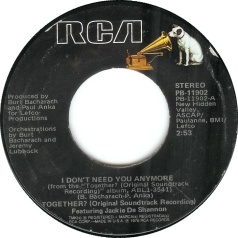 I’ve never seen the film Together? and based on the lead single from the soundtrack — “
I’ve never seen the film Together? and based on the lead single from the soundtrack — “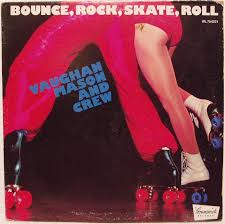 So, apparently “skate disco” was a thing, and if you were skate-discoing in early 1980, you were almost certainly doing so to “
So, apparently “skate disco” was a thing, and if you were skate-discoing in early 1980, you were almost certainly doing so to “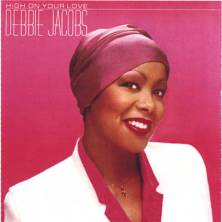 Donna Summer’s influence on disco can’t be overstated, whether you like her or not (I’m mixed on the subject). As evidence, we have “
Donna Summer’s influence on disco can’t be overstated, whether you like her or not (I’m mixed on the subject). As evidence, we have “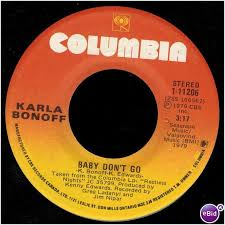 Full disclosure: I don’t think I’ve ever heard a Karla Bonoff song. She’s one of those names I’ve heard a lot about, but have no actual experience with. (Boz Scaggs is in this category as well.) “
Full disclosure: I don’t think I’ve ever heard a Karla Bonoff song. She’s one of those names I’ve heard a lot about, but have no actual experience with. (Boz Scaggs is in this category as well.) “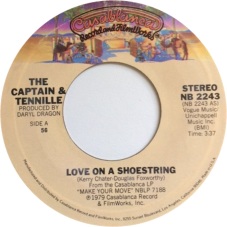 I had never herd “
I had never herd “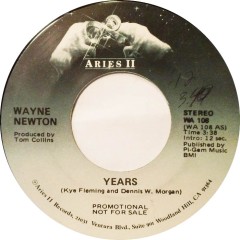 This is the only time we’re going to hear from Wayne Newton, so before I talk about “
This is the only time we’re going to hear from Wayne Newton, so before I talk about “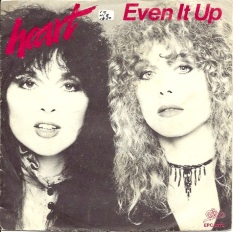 I am not a big fan of Heart, but I recognize that it’s a good thing they exist. They are refreshing proof that rock n’ roll (as opposed to pop) can be a women’s domain as much as it is for men. This may seem a strange thing that needs asserting, but the reason women rockers are fairly commonplace today is because of bands like Heart. In the macho 70s, Heart proved women could be tough and assertive without being countercultural, carving out space for women to be strong and disappointed with their male options. “
I am not a big fan of Heart, but I recognize that it’s a good thing they exist. They are refreshing proof that rock n’ roll (as opposed to pop) can be a women’s domain as much as it is for men. This may seem a strange thing that needs asserting, but the reason women rockers are fairly commonplace today is because of bands like Heart. In the macho 70s, Heart proved women could be tough and assertive without being countercultural, carving out space for women to be strong and disappointed with their male options. “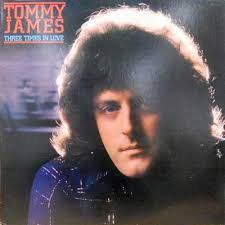 Listening to “
Listening to “ Speaking of Linda Ronstadt, we have “
Speaking of Linda Ronstadt, we have “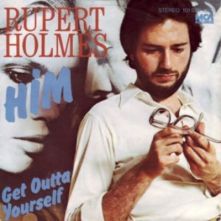 Rupert Holmes continues to surprise me. I had originally written off “
Rupert Holmes continues to surprise me. I had originally written off “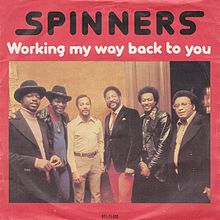 It is, alas, established in the entertainment business that if you put something out there that has name recognition, people will naturally gravitate toward it. This is why Hollywood keeps creating mediocre remakes of good movies (Sabrina, The Day the Earth Stood Still) instead of making stories that are more relevant to the zeitgeist of the time. So, then The Spinners come along and give us a straight-up remake of not just “
It is, alas, established in the entertainment business that if you put something out there that has name recognition, people will naturally gravitate toward it. This is why Hollywood keeps creating mediocre remakes of good movies (Sabrina, The Day the Earth Stood Still) instead of making stories that are more relevant to the zeitgeist of the time. So, then The Spinners come along and give us a straight-up remake of not just “
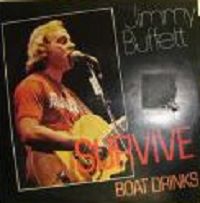 I’m getting a very strong Randy Newman vibe off of “
I’m getting a very strong Randy Newman vibe off of “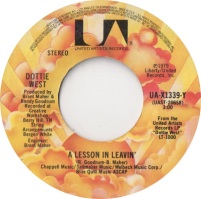 Has any hip-hop artist sampled the backbeat from “
Has any hip-hop artist sampled the backbeat from “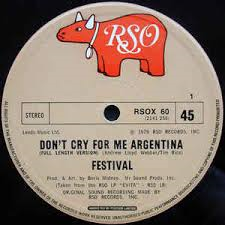 As you can probably imagine, “
As you can probably imagine, “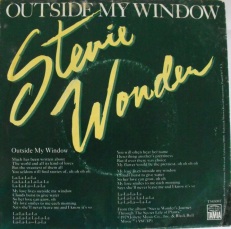 I’m going to sing the praises of Stevie Wonder again, not because I think “
I’m going to sing the praises of Stevie Wonder again, not because I think “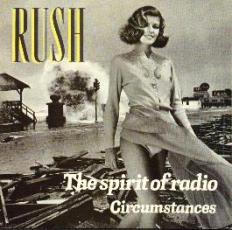 I have never been much of a fan of Rush, but I respect what they do with music, because, like Stevie Wonder, they try and succeed in doing interesting things with music that few people were trying to do on the top 40 charts. “
I have never been much of a fan of Rush, but I respect what they do with music, because, like Stevie Wonder, they try and succeed in doing interesting things with music that few people were trying to do on the top 40 charts. “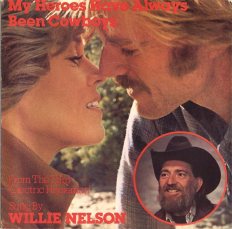 “
“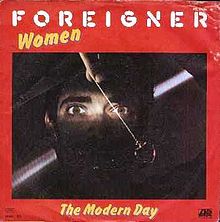 The don’t make casual misogyny like “
The don’t make casual misogyny like “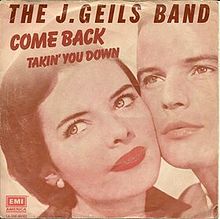 “
“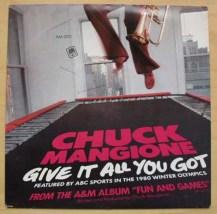 My father loved Chuck Mangione. I never regarded him as anything more than harmless. Given all the other things we might have been listening to on the way to school, I far preferred Chuck Mangione over some of the other available options. I don’t explicitly remember “
My father loved Chuck Mangione. I never regarded him as anything more than harmless. Given all the other things we might have been listening to on the way to school, I far preferred Chuck Mangione over some of the other available options. I don’t explicitly remember “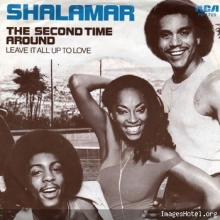 Shalamar, at least in “
Shalamar, at least in “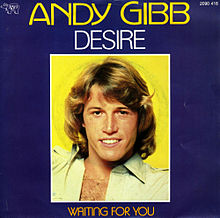 “
“ On 15 March 1980, “
On 15 March 1980, “ Thankfully “
Thankfully “ I’m having trouble getting excited about “
I’m having trouble getting excited about “ “
“ The purpose behind the movie The Rose was to help us all imagine what life was like with Janis Joplin, even if the movie wasn’t technically about Janis Joplin. Bette Midler’s cover of “
The purpose behind the movie The Rose was to help us all imagine what life was like with Janis Joplin, even if the movie wasn’t technically about Janis Joplin. Bette Midler’s cover of “ Weird as it may be, I think “
Weird as it may be, I think “ “
“ I would never have known this if I’d not gone to the song’s Wikipedia page, but it turns out that “
I would never have known this if I’d not gone to the song’s Wikipedia page, but it turns out that “ John Cougar Melloncamp’s made a career out of angsty earnestness, and “
John Cougar Melloncamp’s made a career out of angsty earnestness, and “ You would think if you wanted to foist a jingoistic single on the world, you would try to time it to your country’s independence day. Independence Day in the USA is July Fourth; Jim Kirk’s grating bombastic bit of national chauvinism — “
You would think if you wanted to foist a jingoistic single on the world, you would try to time it to your country’s independence day. Independence Day in the USA is July Fourth; Jim Kirk’s grating bombastic bit of national chauvinism — “ In slot #47, there’s Tavares, who in 1976 were worried that
In slot #47, there’s Tavares, who in 1976 were worried that  Bonnie Pointer of the Pointer Sisters had something of a solo career, of which “
Bonnie Pointer of the Pointer Sisters had something of a solo career, of which “ Leave it to Led Zeppelin to construct something that grabs a listener’s attention with something that just sounds different. In this case it’s “
Leave it to Led Zeppelin to construct something that grabs a listener’s attention with something that just sounds different. In this case it’s “ On 9 February, 1980, “
On 9 February, 1980, “ “
“ After Prince’s genre-defying
After Prince’s genre-defying  Sometimes you have to be careful with YouTube.
Sometimes you have to be careful with YouTube.  John Stewart is a former member of The Kingston Trio, and given “
John Stewart is a former member of The Kingston Trio, and given “ Full disclosure: I was four years old in 1980, which means that like some of the young ‘uns out there today who are unaware that Sting got his start in a band called The Police, I was unaware that Chaka Khan started out with Rufus (who isn’t actually a person at all, but just the name of the band). They had a string of top-40 soul and disc hits through the 70s, of which “
Full disclosure: I was four years old in 1980, which means that like some of the young ‘uns out there today who are unaware that Sting got his start in a band called The Police, I was unaware that Chaka Khan started out with Rufus (who isn’t actually a person at all, but just the name of the band). They had a string of top-40 soul and disc hits through the 70s, of which “ “
“ Speaking of Isaac Hayes, he’s one of the talents behind “
Speaking of Isaac Hayes, he’s one of the talents behind “ “
“ At #8, we have another loping bit of somnolent rocking from The Eagles, “
At #8, we have another loping bit of somnolent rocking from The Eagles, “ On 2 February, 1980, “
On 2 February, 1980, “
 Peaking at #41, just outside the hit zone, is “
Peaking at #41, just outside the hit zone, is “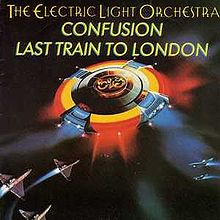 Then we have a compelling guitar riff backed by a suitably funky pace, and I think that we may have something special… until I realize it’s the perfectly nonsense “
Then we have a compelling guitar riff backed by a suitably funky pace, and I think that we may have something special… until I realize it’s the perfectly nonsense “ I somehow missed that Santana put out albums in the 80s, but given how uninspiring “
I somehow missed that Santana put out albums in the 80s, but given how uninspiring “ Speaking of Cheap Trick, here they are with “
Speaking of Cheap Trick, here they are with “ We’re not going to hear much from The O’Jays in the 1980s. Their hey-day was the 60s and 70s, and there’s not going to be much room for the molasses-rich soul vocals they were soaking their records in. This is a shame because even when they’re singing scary lyrics like “don’t you ever think about leaving”, like they do here on “
We’re not going to hear much from The O’Jays in the 1980s. Their hey-day was the 60s and 70s, and there’s not going to be much room for the molasses-rich soul vocals they were soaking their records in. This is a shame because even when they’re singing scary lyrics like “don’t you ever think about leaving”, like they do here on “ Another classic band we’re not going to see much of again is Foghat, whose clumsily titled “
Another classic band we’re not going to see much of again is Foghat, whose clumsily titled “